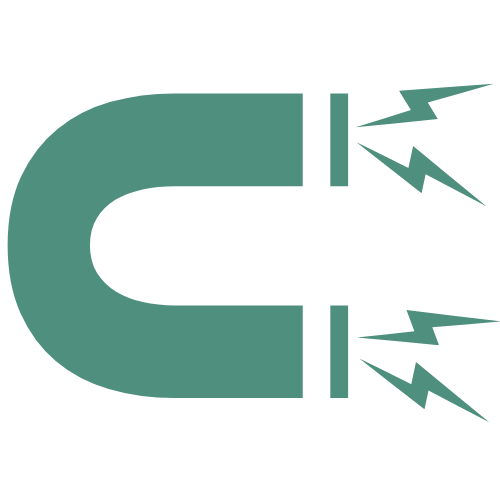So, all your hard work has paid off. Your Cover Letter and Resume earned you an interview, which you’ve just completed. And whether you believe it went well or not, your fate is now sealed, left in the hands of the hiring gods. Or is it?
Most people leave an interview and believe their work is done. It is time to relax, move on to the next job application, or possibly drown their sorrows. Only ten percent go on to write even a Thank You Note! That simple step alone will set you apart from your competition. But most job applicants don’t realize there is another step to the process.
In fact, the moments just following your interview are crucial. The Post-Interview Letter offers a critical opportunity, one that might impact your chances of receiving a job offer more than any other step in the entire application process.
Think of it as a Second Interview.
Did you ever wish you’d phrased something better during your interview? Or recognize that you didn’t quite know the answer (and probably everyone was aware of it)? Perhaps you learned more about the company and its concerns (and therefore opportunities) and thought of some solutions, but only when it was too late. You might realize you simply hadn’t done enough research. Or new questions arose after the interview, but you didn’t know what to do with them? It’s not too late!
Consider this example: One employer centers his hiring process around the Post-Interview Letter. For candidates who interview well, he asks, “Would you like a second interview?” Naturally, most of the applicants respond in the affirmative. “Ok, your second interview begins now. Take everything we’ve discussed in our interview and go write a letter addressing the critical aspects or points that were most interesting to you.” He doesn’t place a deadline or even give a specific assignment. He lets the applicant make those decisions and determine his or her level of effort.
And generally the best letter that arrives soonest earns the job offer. “Preferably the same day,” suggests the employer regarding the timeline for an impressive PIL. The combination of a strong interview with a thoughtful and timely post-interview letter is a recipe for success. The Cover Letter and Resume earn the Interview, and then the Post-Interview Letter brings it home and earns the job offer!
Most employers won’t be so straightforward, giving you a clear-cut “Second Interview” by assigning a Post-Interview Letter. But if you want the job, take this unparalleled opportunity–Give yourself the assignment! Do the research and write the letter. If you interviewed well, this is your opportunity to bring it home, tying up loose ends, summarizing how you heard their needs, and showing that you are eager to address them. If you fear you didn’t interview well, this is your chance to improve on your performance.
To prepare for your PIL, debrief after your interview:
- Immediately upon completing the Interview, start making notes.
- What did you learn about the company that you hadn’t discovered in your earlier research or that supplements your research?
- What are the problems they need solved, through this job hire?
- Make sure you know who attended the Interview, their title, and the proper spelling of their name. Who said or asked things that resonated, made you think, or were informative?
- Ask yourself if there were questions you didn’t answer well. Take this opportunity to acknowledge it, do more research, and find a better answer.
- Write down everything that seemed important. Be thorough in your debrief.
Study time! Research answers to anything you didn’t know. Identify how you can offer solutions to the problems the interviewers presented, implied, or might not even recognize. If they made an off-hand remark about some issue, can you determine a solution?
Now you’ve noted everything pertinent about the interview, determined the areas of importance, and done your research. You’ve also acknowledged moments when you were stumped, incoherent, or didn’t say everything you’d have liked to. Great! You’re ready to write your letter. This is your opportunity to clarify and improve upon your interview.
Composing the PI Letter:
- Use the same letterhead and paper as your Cover Letter and Resume
- Address the letter to each individual present, separated by commas, or the leader of the interview and the interview committee.
- Mention that you enjoyed meeting them all and what inspired you or why their firm feels even more like a great fit for you, following the interview.
- Review your notes and determine the most relevant issues and their order of importance.
- Keep your tone polite, but enthusiastic. You want to impress them with your ability to do whatever it takes to complete any task (even those that aren’t assigned and that offer no guarantees) and your tireless commitment to the highest standards.
- Remember that this is about how you can best meet their needs. It should not be used as an opportunity to talk about how great you are in general. Every single sentence should be directed to the employer, the firm’s needs, and the solutions you offer. Exhibit your excellent listening skills by addressing what they said to you in the interview. This is also an opportunity to further demonstrate your research skills by showcasing your research of their company and how it pertains to your interview and what you bring to their table.
- Be concise, yet thorough. Keep the content relevant. However, this isn’t a letter that must fit entirely on one page. The length will be determined by the quantity and quality of relevant information you include.
- Take your time and write a professional letter. Check, then double check, then triple check for grammar, spelling, typing, and all content.
- Hand-deliver your Post-Interview Letter, if possible. Or, email it with the original to follow promptly via mail.
The Post-Interview Letter takes effort. Rather than leaving your interview to relax or switch gears, you instead ramp up your focus and work even harder. It is the best opportunity to ensure a successful interview. The PIL is your final venue to demonstrate to your future employer your awareness of their business and what you can offer them, your listening and problem-solving skills, and your willingness to research and complete every task to the highest standards.
Employers want people who really want the job and will go the extra mile. This letter is the best way to demonstrate these qualities at a time when the employer is “listening.” The PIL is the most powerful way for a candidate to show through ACTION and not just talk how you will be an ideal employee.
.

